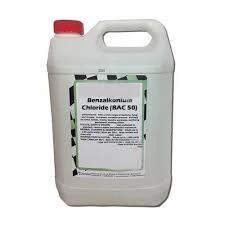Understanding Scale Formation and Effective Corrosion Inhibition Strategies for Industrial Applications
Scale and Corrosion Inhibitors The Unsung Heroes in Industrial Water Systems
In various industrial applications, especially in water treatment and cooling systems, the presence of scale and corrosion poses significant challenges. Both processes can lead to reduced efficiency, increased maintenance costs, and even equipment failure. To combat these issues, scale and corrosion inhibitors have become essential components in maintaining the integrity and longevity of industrial systems.
Understanding Scale and Corrosion
Scale formation occurs when minerals dissolved in water precipitate and crystallize on surfaces, leading to deposits that can hinder fluid flow and heat exchange. Common culprits include calcium carbonate, silica, and barium sulfates. On the other hand, corrosion refers to the deterioration of materials, particularly metals, due to chemical reactions with their environment. This can result in pitting, rust, and structural weaknesses in pipes, boilers, and heat exchangers.
The Role of Inhibitors
Scale and corrosion inhibitors act as protective agents that enhance the performance of industrial water systems. In the case of scale inhibitors, they work by interfering with the crystallization processes. For example, they can prevent the formation of scale by modifying the way minerals bond together, making it more difficult for deposits to form on surfaces. Some common types of scale inhibitors include phosphonates, polyacrylates, and organic acids.
scale and corrosion inhibitor

Corrosion inhibitors, on the other hand, function by forming a protective film over metal surfaces, thereby isolating them from corrosive agents. These inhibitors can be categorized into anodic inhibitors, which enhance the cathodic reaction, and cathodic inhibitors, which slow down anodic reactions. Examples of corrosion inhibitors include nitrites, molybdates, and amine-based compounds. The choice of inhibitor often depends on the specific conditions of the system, such as pH levels, temperature, and the type of metals present.
Benefits of Using Inhibitors
The application of scale and corrosion inhibitors offers a plethora of benefits. Firstly, they contribute significantly to efficient operations by preventing blockages and maintaining optimal flow rates. This efficiency translates to reduced energy consumption, ultimately leading to cost savings. Additionally, by reducing the frequency of equipment failure due to corrosion, inhibitors minimize downtime and maintenance costs, allowing for smoother operation and increased productivity.
Moreover, inhibitors can extend the lifespan of equipment. With less wear and tear caused by corrosion and scale buildup, industrial systems can operate effectively for longer periods. This longevity not only saves costs on replacements but also contributes to more sustainable operations, reducing the environmental impact associated with manufacturing new equipment.
Conclusion
As industries increasingly focus on efficiency and sustainability, the role of scale and corrosion inhibitors cannot be overstated. They serve as vital protectors of industrial water systems, ensuring longevity, efficiency, and cost-effectiveness. Implementing a well-planned strategy for the use of these inhibitors can lead to significant operational advantages. Therefore, understanding and investing in appropriate scale and corrosion inhibitors is essential for any industrial operation aiming for reliability and enhanced performance in water management systems. With the right inhibitors in place, industries can effectively mitigate the threats posed by scale and corrosion, paving the way for a more efficient and sustainable future.
-
Water Treatment with Flocculant Water TreatmentNewsJun.12,2025
-
Polymaleic AnhydrideNewsJun.12,2025
-
Polyaspartic AcidNewsJun.12,2025
-
Enhance Industrial Processes with IsothiazolinonesNewsJun.12,2025
-
Enhance Industrial Processes with PBTCA SolutionsNewsJun.12,2025
-
Dodecyldimethylbenzylammonium Chloride SolutionsNewsJun.12,2025





